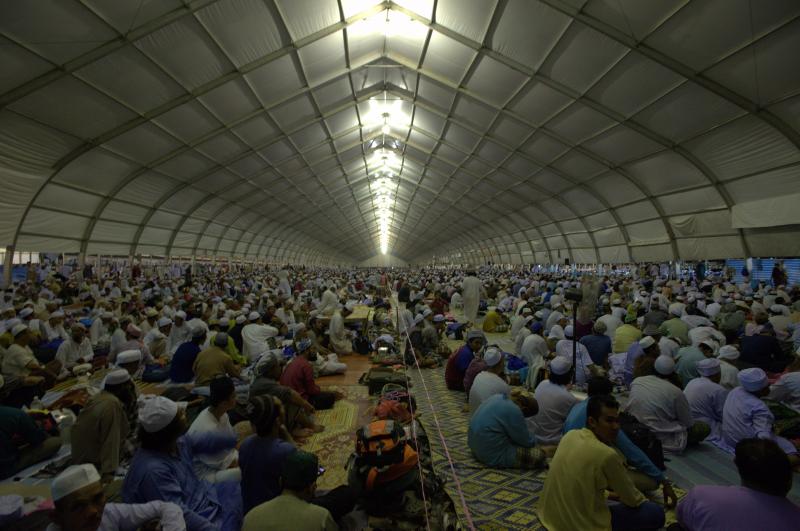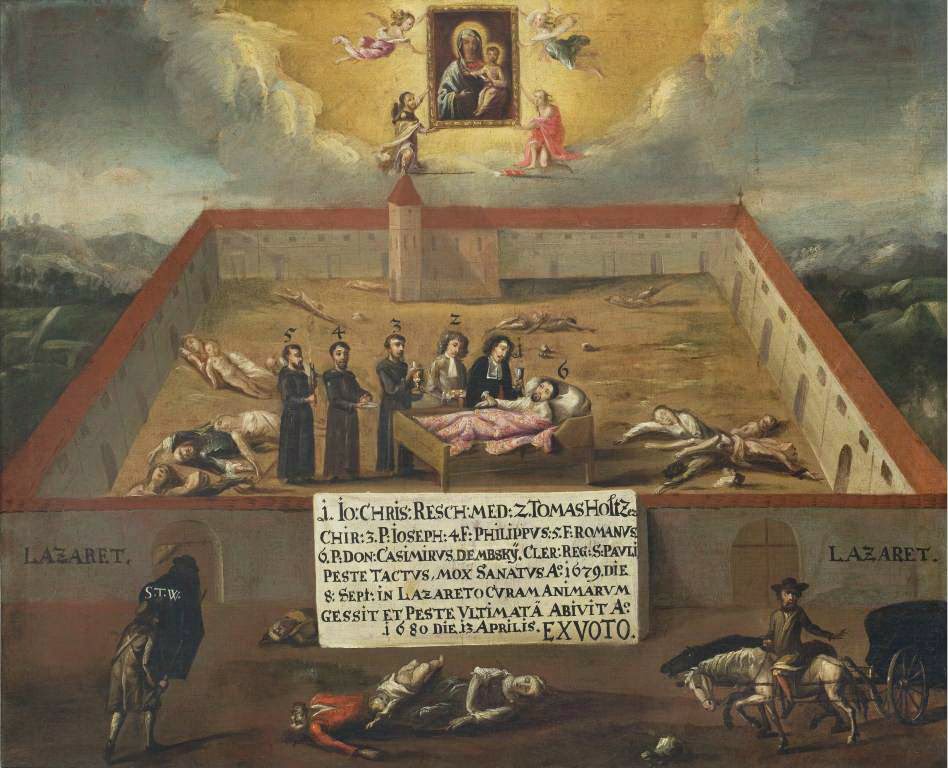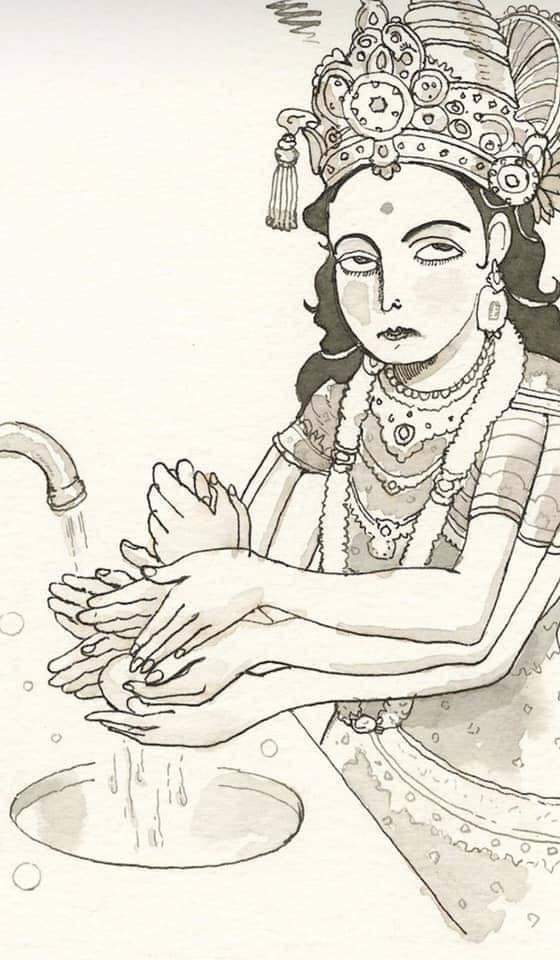Quarantining God

By Gurwinder Bhogal
Staff Writer
31/3/2020

For all the misery that the new coronavirus has wrought, it at least serves as a wakeup call to guard against future pandemics. Mass outbreaks are becoming more common, and with superbugs and bio-terrorism on the horizon, we have a simple choice: make fundamental changes to the way we live, or face widespread death and debilitation.
So what should we change? Much blame has been placed on China’s upper-class’ appetite for exotic animals. But one of the key drivers of the pandemic that has gotten little attention has been religious ritual. All the evidence suggests it has been a colossal engine of infection, spreading the virus across the globe, so anyone serious about safeguarding society against future pandemics must consider an overhaul of major religious traditions.
The problem is, these rituals are sacred to billions of people, many of whom love them more than life itself. Is it right to force them to change their most cherished traditions in the interest of safety, and if so, is it even possible?
First, we must understand the dangers of such traditions. Religious rituals often provide the ideal conditions for diseases to spread. They frequently involve masses of people regularly coming together in close proximity to share wine (Eucharist), kiss a shrine (Tawaf), or smear dye on each other (Rangwali Holi). Many rituals around the world involve ablution in shared pools of water, which can contaminate as they seem to purify.
Religious rituals often provide the ideal conditions for diseases to spread.
Such public acts of worship are often overseen by a priest, who will come into close contact with many different people, each of whom he could infect or be infected by. Pilgrims also travel far to attend major rituals, thus transmitting infections across great distances.
Religious rituals are now known to have played a leading role in the spread of the coronavirus across the world. The Shincheonji Church of Jesus was responsible for the vast majority of cases in South Korea. Two of the biggest viral clusters in Singapore have been connected to churches. A synagogue in Westchester County has been central to New York State’s worst outbreak. Pilgrims returning from Iran’s holy city of Qom – one of the most contaminated regions in the world – have spread the virus throughout Central and South Asia. A gathering of 16,000 at a Malaysian mosque became the pandemic’s largest known vector in Southeast Asia, spreading the coronavirus to half a dozen countries.

A religious gathering organized by the Malaysian missionary group Jamaat Tablighi, similar to the one that spread the virus across Southeast Asia
To make things worse, religious rituals are typically regarded not as a cause of outbreaks, but as a cure, and therefore many have responded to the pandemic not by winding down their rituals but by stepping them up. In Israel, nearly a thousand people gathered at the Western wall to pray for coronavirus victims, while in Bangladesh tens of thousands amassed to pray for an end to the pandemic. In Iran, some Shia pilgrims tried to beat the virus by licking shrines.
Furthermore, many adherents refuse to deviate from their practices even when they are made aware of the risk they pose, and even in the face of common sense, medical advice, or state sanction. There are countless examples of religious leaders or groups deliberately defying safety measures during the pandemic. In Italy, Pope Francis ignored the lockdown to lead his entourage on a tour of prayer around the country and encouraged his priests to go out and visit the sick. In Pakistan, clerics stubbornly refused to close mosques, which continue to be densely packed with worshippers, who proclaim “We don’t believe in coronavirus, we believe in Allah.” In Eastern Europe, the ruling body of the Orthodox Church told its followers that coronavirus cannot be transmitted through Holy Communion, due to its magic powers, and therefore the ritual has continued unabated in Orthodox churches, often using the same spoon for many mouths. In the US, Florida pastor Rodney Howard-Browne, who prayed over Trump in the Oval Office, vowed not to stop services and encouraged worshippers to shake hands, while in Louisiana, pastor Tony Spell said that he would not permit “any dictator law” to stop worship, and continues to defy regulations by holding services that attract hundreds. In Iran, Shiite Muslims stormed shrines that closed due to the outbreak, while Ayatollah Tabrizian denounced medical science as “unIslamic” and reassured Muslims that the coronavirus can be cured by applying essential oil to the anus.

Coronavirus: Spread by bats and theocrats
Clearly, there are many for whom religious life trumps actual life. But if such people won’t be convinced by science or compelled by law, how can we get them to change their ways and make life safer for all of us?
A clue can be found in the ways some religious groups have responded to the virus. In the UK, the Church of England has acted relatively rationally and closed all its churches, with many of its priests taking to preaching online. Crucially, the Church has justified its decision to save souls via Skype theologically, for instance by issuing guidance decreeing that a “spiritual” (i.e. virtual) Communion is as valid as a traditional one.
This guidance illustrates the degree to which exegesis (interpretation of scripture) is flexible, dexterously remolding old dogmas to justify necessary departures from tradition. New readings of scriptures have long been used to update religions to in line with the latest mores: for instance, both the practice and the abolition of slavery in the Western world were rationalized by different readings of the Bible.
Even Islam, the most rigid of today’s major religions, has been able to bend to accommodate changing social attitudes. Most Muslim authorities have skillfully reinterpreted the violent Sword Verses of the Qur’an as not prescribing death to unbelievers. And many Islamic scholars, like Yusuf Hanafi and Muhammad Al-Ashari, have used exegesis to avoid following the prophet Muhammad’s advice to drink camel piss (which, incidentally, has been linked to the spread of MERS-CoV, a coronavirus even deadlier than the one ravaging the world right now).
Encouragingly, some of the world’s Islamic authorities have already taken the advice of epidemiologists and reacted responsibly to the current pandemic. Earlier this month, Saudi Arabia’s General Presidency of the Grand Mosque and the Prophet’s Mosque suspended entry to the two holiest sites in Islam. Even ISIS is taking the virus seriously, telling its members to wash their hands and to avoid travel to virus-stricken Europe – the jihad against the infidels, it seems, has been postponed due to COVID-19. The fact that even some of the most fundamentalist religious groups on earth have temporarily altered their practices in light of the pandemic offers hope that with good exegetic reasoning and an appeal to the greater good, the temporary restrictions on ritual can be made eternal decree.

Will a top-down theologically-justified reform of religious practices completely eliminate old practices? Obviously not. In Turkey it is illegal to marry young children, but this hasn’t stopped many from following their prophet’s example anyway. Some people will fight any attempts to update their religion, and continue to engage in practices that spread disease. We rightly punish people whose outdated religious beliefs lead them to indirectly bring harm to others, like those who spread terrorist propaganda, so we should at the very least penalize those who defiantly and habitually engage in disease-spreading rituals with a hefty fine.
This isn’t a perfect solution, but it’s the best we can do until our species is mature enough to cast off the superstitions of its childhood – if we ever get that far. Religion is a robust parasite of the mind; despite causing its hosts to engage in behavior that spreads disease among themselves – a fast way for a meme to commit suicide – it’s never been short of new hosts. One of the reasons for this may be because, although some religious practices spread disease, disease also often spreads religion: the Antonine Plague and the Plague of Cyprian, for instance, are regarded by historians as being pivotal to the spread of Christianity. The fear of death makes people dream of afterlives, and the random ferocity of nature and the suffering it can cause makes them grasp for meaning and solace.

The plague hospital at Alsergrund
Does this mean the COVID-19 pandemic will cause a surge in religious belief, manifesting in more dangerous rituals, which will spread the disease further, which in turn will lead to more religious belief in a self-perpetuating spiral of doom? That’s up to us. Already many are proclaiming the virus God’s punishment for deviation from religion, and opportunistically advocating a return to old traditions to escape a future in Hell. But one thing’s for sure; if we react to this pandemic by persisting in disease-spreading rituals, then, far from averting Hell, we may be inviting it into this world.
If we react to this pandemic by persisting in disease-spreading rituals, then, far from averting Hell, we may be inviting it into this world.
The coronavirus pandemic has shown that we can no longer afford to shrug off harmful religious practices as harmless make-believe. In today’s interconnected world, the irrational behavior of even small groups of people can have disastrous consequences for everyone else. To prevent outbreaks we must demand that even sacred traditions meet basic standards of health and safety.

Meme of the mighty Hindu goddess Durga washing her many hands during the COVID-19 pandemic
One of the enduring themes of the ritual is sacrifice; Communion celebrates Jesus giving up his flesh for humanity, Ramadan entails believers giving up food for Allah (and the starving poor), Gadhimai involves the mass ritual slaughter of animals. If devotees truly wish to practice what they preach, perhaps they can make a small sacrifice for something greater than themselves and adapt some of their traditions for all our sakes.
Related posts:
Tablighi Superspreaders in Pakistan
The Culture Factor in COVID-19
The Moral Foundations of Anti-Lockdown Anger
Debunking the Secular Case for Religion
Modi and His Supporters Face a COVID Reckoning
Are Anti-Lockdown Protests Legal?
Allegory in the Time of Coronavirus
Your Odds of Dying From COVID-19 Depend on How Polluted Your Air Is
Japanese Culture Isn’t Designed to Handle a Pandemic
The Coronavirus and the Crisis of Responsibility
To See How Coronavirus Outbreak might Play Out, Look at This Virtual Plague
FAKE NEWS | Nothing to Worry About, Says Wuhan Official From Inside Biohazard Suit
